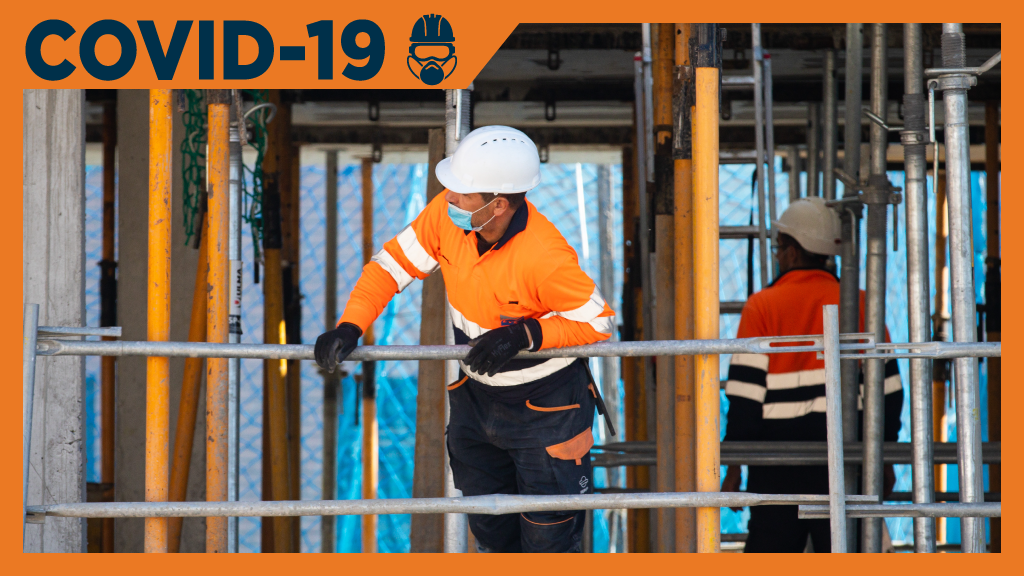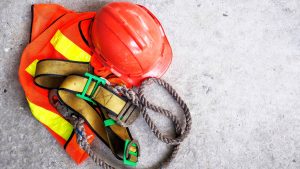The COVID-19 pandemic has tested Ontario’s construction CEOs as never before in their careers, three top executives told participants in a recent webinar — and the challenges are not nearly done yet, they predicted.
Harold Reinders, Bryan Arnold and Frank Perricone, CEOs at Maple Reinders Group, Eastern Construction and Percon Construction respectively, participated in a League of Champions event billed as The View from the Top on June 3.
The three bosses said priorities since the pandemic broke in March have included supporting and reassuring employees, stepping up communication, “extending grace” to staff and delivering innovative new practices on the fly.
Working in the corner office may come with a certain status during normal times but things change during a crisis, Reinders said.
That worst-case scenario came along much faster than we could have imagined,
— Harold Reinders
Maple Reinders Group
“When a major crisis like this comes, it is not as wonderful as it seems,” he commented.
“People are watching me closely…we see who the real leaders are.”
Reinders said first priorities as it dawned on the sector that the pandemic would significantly impact construction was working intensely with senior managers to develop strategies and also preparing to communicate updates to employees.
The managers had to determine what practical steps would be taken to shut down sites if necessary and arrange for some staff to work from home, and the updates to staff needed to be authoritative. News could not be learned from social media, he said.
“We had to go face forward, to head right into it,” said Reinders, echoing his hero Sir Winston Churchill.
The executive team began preparing a “playbook” for a worst-case scenario March 11.
“That worst-case scenario came along much faster than we could have imagined,” said Reinders.
Eventually, the site-closing plans became operational as 12 Maple Reinders jobs were shut down.
“We had plans in place and it went very smoothly,” Reinders said.
Given that the developments were unprecedented, mistakes were made. But a unique atmosphere prevailed, one of trust and forgiveness.
“Grace had to be extended,” he said. “As a leader I had to own that.”
Eastern CEO Arnold stressed how important it was for managers to stay updated on a daily basis and to focus on the well-being of employees at all times.
Eastern formed a formal COVID-19 response team with managers empowered to make any decision necessary. Senior managers gave Arnold updates on every project every day. Then, as sites were shut down, it became a priority to figure out how to restart them when the time came.
“We started very early in the program creating COVID-19 procedures that we thought would be applied to sites as the government allowed us to reopen them,” he said.
The decision was made to reassure salaried employees that there would be no layoffs.
“We told them, take care of yourself and your family first,” Arnold said.
Percon has always been a family-first business, said Perricone, with staff often eating lunches together. Nothing changed once the pandemic took hold.
The first thing Percon did was hold a meeting with all employees and site supervisors on the phone.
“The first thing I told them, we don’t want you to worry about a paycheque, you will have a paycheque every week,” Perricone said.
As plans developed on site shutdowns and safety, Percon tapped into the knowledge of its partners. The solutions came quickly.
“I thought, how great this industry is,” he said.
Keeping talented, long-time employees happy bears dividends at times of crisis like now, Perricone said. Staff who have been at Percon for 15 years or more were encouraged to develop and share solutions, which makes firm-wise acceptance of new protocols easier.
“If they buy into it, it makes it easier,” he said.
After the second definition of essential workplaces was released by the government, Percon was down to three sites open. At that point, the focus went to “thinking outside of the box” to allow employees to be part of the solution as they planned for a restart.
Arnold was asked by panel convenor Craig Lesurf how his firm was preparing for a possible second wave of COVID-19.
The CEO said his team had to continue to build on the momentum created to remain hyper vigilant on safety — like a “League of Champions on steroids,” Arnold said.
“We have sat down with every single subtrade, which is no small feat, and gone through the procedures and got their buy-in,” he said.
Another major concern of the contractors will be the financial viability of project partners. Reinders said most contractors are used to facing a situation where one subcontractor on a project goes bankrupt, but what will happen if four or five go under, he asked.
“I think moving forward that is going to be an important issue for our industry,” said Reinders.
Follow the author on Twitter @DonWall_DCN.











Recent Comments
comments for this post are closed